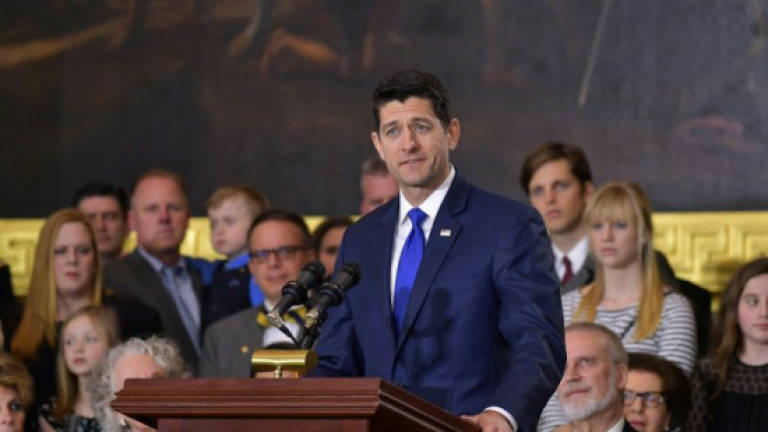US lawmakers clinch spending deal to avert govt shutdown

WASHINGTON: US congressional budget negotiators said Wednesday they had reached a deal on federal spending for the remainder of fiscal 2018, two days before a deadline to fund the government or risk a shutdown.
The US$1.3 trillion, (RM5 trillion) spending bill was hailed by House Speaker Paul Ryan, Congress's top Republican, as marking "the beginning of a new era for the United States military," while Senate Minority Leader Chuck Schumer said it would fulfill Democratic priorities.
It was introduced with precious little time to act. Government funding expires at midnight Friday night, and the House of Representatives and Senate will need to scramble if both chambers are to pass the measure and get it signed by President Donald Trump by the deadline.
The White House later said Trump supported the deal.
It signals an end — or at least a pause — to the deeply partisan feuding over funding that has roiled Congress for months.
Five times lawmakers have had to pass stopgap funding legislation to keep the government's lights on, and twice this year the government was allowed to slip into shutdown.
A third lapse would be deeply embarrassing for a Republican-controlled Congress facing mid-term elections in November.
The bill sets defense spending levels, including a 2.4% raise for troops, at US$700 billion for the year, an increase of US$61 billion over the 2017 level.
Trump and other Republicans have repeatedly raised the alarm about the country's military and how it has been severely depleted from budgetary constraints.
Non-defense domestic spending will reach US$591 billion, an increase of about 10 percent.
Eleventh-hour snags on multiple issues, including immigration enforcement, border security, infrastructure and health care payments, had bogged down the release of the monster measure.
The bill includes nearly US$1.6 billion for construction of almost 160km of physical barriers and fencing along the US-Mexico border.
And while it does not include any provisions that defund so-called sanctuary cities, where authorities do not take action against undocumented immigrants who don't commit crimes, it fails to address protections for more than a million immigrants who arrived in the country illegally as children.
Democrats can meanwhile claim increased domestic spending on issues like infrastructure, education and battling the opioid crisis. — AFP